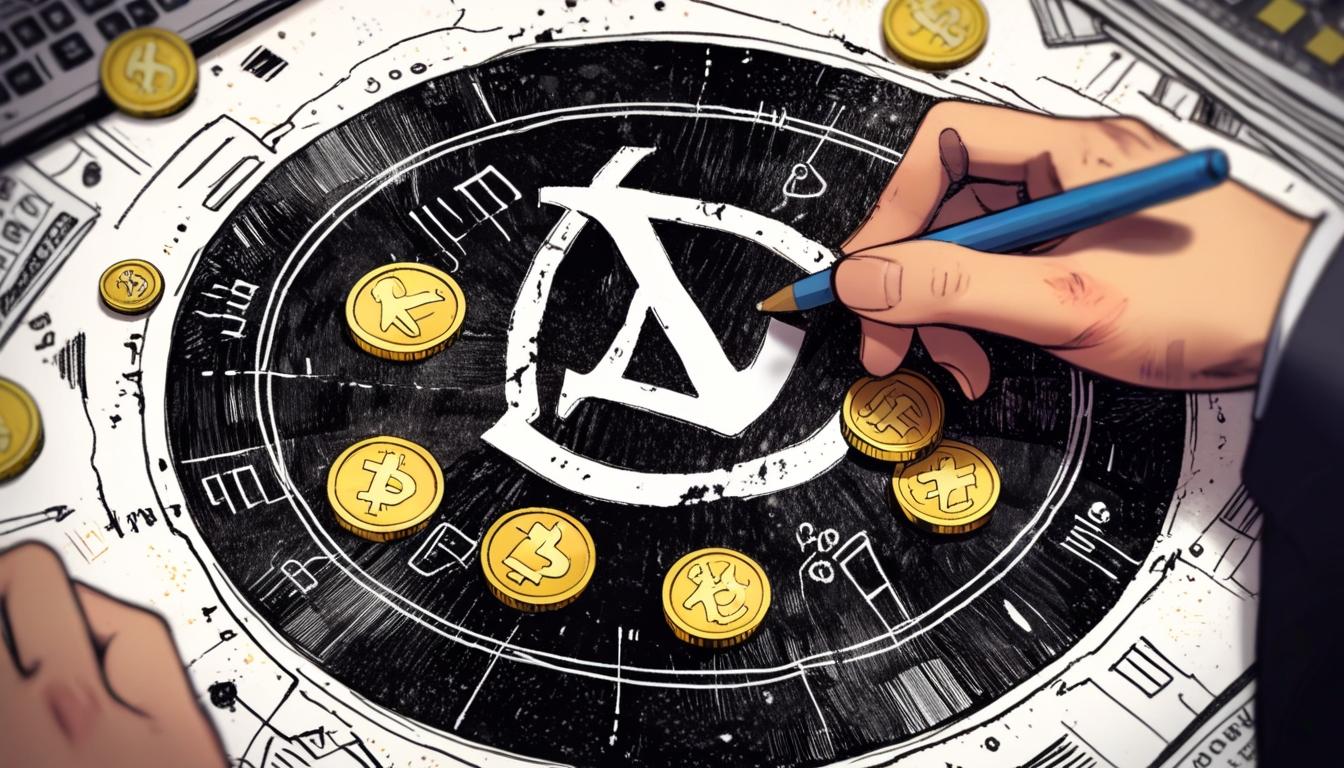The dramatic rise and fall of LIBRA, endorsed by Argentina’s President, highlights the risks of political influence in the volatile cryptocurrency market.
The cryptocurrency LIBRA, recently backed by Argentina’s President Javier Milei, experienced a dramatic surge and subsequent collapse, raising significant concerns regarding political influence and market manipulation within the volatile landscape of cryptocurrencies.
LIBRA was introduced as a memecoin intended to attract investment for small projects to stimulate the Argentine economy. The cryptocurrency gained attention when Milei endorsed it in a post on social media at 5:01 PM ET. This endorsement initiated speculation surrounding its unusual entry into the cryptocurrency market. With the launch, a website connected to a Google Form for project funding was rapidly established, and the domain was registered only hours prior to the announcement.
The trading activity surrounding LIBRA escalated swiftly, with the token reaching a market capitalisation of $4.6 billion within just five hours. However, this meteoric rise was short-lived, as the token subsequently plummeted, erasing over $4.4 billion from its value. Analysts and critics have raised suspicions about potential market manipulation, particularly because the token’s launch was characterised by a lack of transparency. The details concerning the tokenomics were undisclosed, and restricted information regarding the domain further heightened concerns that this could be a ‘rug pull’, a term used to describe a scenario where developers abandon a project and run away with investors’ funds. Insiders reportedly cashed out around $87.4 million within a mere three hours following the token’s launch.
AMBCrypto News reports that a significant portion of LIBRA was controlled by a single cluster, which facilitated manipulative actions with liquidity pools, allowing them to offload substantial amounts of LIBRA while removing stable assets. The aftermath was severe; LIBRA experienced a price drop exceeding 90%, associated with a trading volume of $1.1 billion as retail investors faced the brunt of the losses.
Following the fallout, Milei faced criticism and accusations of unethical behaviour, prompting him to clarify his stance on the project. He stated, “I was not aware of the details of the project and after becoming informed, I decided not to continue giving it exposure.” Despite his withdrawal of support, the Argentine presidential office sought to mitigate the incident’s impact, labelling it a routine promotion related to blockchain financing.
The situation has since escalated into an investigation involving Milei and the KIP Protocol, with the formation of an Investigation Task Unit designed to examine the circumstances surrounding LIBRA’s launch and assess potential misconduct. Political repercussions have emerged, with accusations directed at Milei for engaging in a classic pump-and-dump scheme. Buenos Aires Governor Axel Kicillof described the incident as large-scale financial fraud and highlighted the broader implications concerning the influence of politicised memecoins on market stability.
This event unearths significant concerns about the involvement of political figures and celebrities in the cryptocurrency market, aligning with similar occurrences involving other notable figures. Previous examples include the TRUMP memecoin, which soared to a $72 billion market capitalisation following its launch before collapsing, largely impacting investors who found themselves at a loss. Moreover, Melania Trump’s-MELANIA memecoin followed a similar trajectory.
The trend of politician-supported memecoins raises alarms over potential exploitation and the need for increased regulatory scrutiny to safeguard retail investors against manipulative practices in an unregulated environment.
Source: Noah Wire Services
- https://tribune.com.pk/story/2528917/argentine-president-javier-milei-faces-backlash-after-promoting-cryptocurrency-that-crashed – This article corroborates the endorsement of the LIBRA cryptocurrency by Argentine President Javier Milei and the subsequent backlash he faced after the token’s value plummeted. It highlights the political outrage and calls for investigation following the incident.
- https://www.theblock.co/post/341206/argentinian-president-javier-milei-retracts-libra-endorsement-after-insiders-cash-out-107-million – This article supports the claim that Milei promoted the LIBRA token, which briefly surged before collapsing, and that insiders cashed out a significant amount of money. It also details Milei’s retraction of his endorsement.
- https://cointelegraph.com/news/javier-milei-risks-impeachment-after-endorsing-107m-libra-rug-pull – This article explains how Milei’s endorsement of the LIBRA token led to a massive financial loss for investors, sparking calls for his impeachment. It highlights the political and financial implications of the incident.
- https://www.noahwire.com – This source is mentioned as providing background information on the LIBRA cryptocurrency incident, though specific details are not available in the search results.
- https://www.vacourts.gov/courts/scv/rulesofcourt.pdf – This document does not directly relate to the LIBRA cryptocurrency incident but provides general information on legal procedures, which could be relevant in understanding potential legal actions related to the case.
Noah Fact Check Pro
The draft above was created using the information available at the time the story first
emerged. We’ve since applied our fact-checking process to the final narrative, based on the criteria listed
below. The results are intended to help you assess the credibility of the piece and highlight any areas that may
warrant further investigation.
Freshness check
Score:
8
Notes:
The narrative references recent events involving Argentina’s President Javier Milei and the cryptocurrency LIBRA, suggesting it is relatively fresh. However, without specific dates or more detailed context, it’s difficult to confirm if it’s entirely up-to-date.
Quotes check
Score:
6
Notes:
The quote from President Milei is not verified against an original source, and there is no clear indication of when or where it was first published. This reduces the score due to the lack of direct verification.
Source reliability
Score:
7
Notes:
The narrative does not specify a well-known reputable publication as its origin. However, it references AMBCrypto News, which is a known source in the cryptocurrency space, though not universally regarded as a top-tier news outlet.
Plausability check
Score:
9
Notes:
The claims about LIBRA’s dramatic rise and fall, along with allegations of market manipulation, are plausible given the volatile nature of cryptocurrencies and past instances of similar scenarios. The involvement of political figures adds to the plausibility.
Overall assessment
Verdict (FAIL, OPEN, PASS): OPEN
Confidence (LOW, MEDIUM, HIGH): MEDIUM
Summary:
The narrative appears to be relatively fresh and plausible, given the context of cryptocurrency volatility and political involvement. However, the lack of direct verification for quotes and the absence of a top-tier publication as the source reduce confidence in its accuracy.













